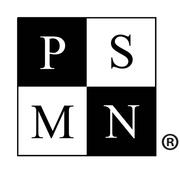(DTSA) Defend Trade Secrets Act

Click here for the text of S.1890 (DTSA) Defend Trade Secrets Act
Click Here for the text of S. 1294 The Protecting American Intellectual Property Act December 2022
On May 11, 2016, President Obama signed S. 1890 the Defend Trade Secrets Act of 2016 (DTSA), which passed the Senate unanimously and the House by a 410-2 vote, thereby creating a federal civil cause of action for misappropriations of trade secrets. Previously, the misappropriation of trade secrets (with a few exceptions) was governed solely by state law. Now, there will be nationwide, federal jurisdiction both civilly and criminally to deal with the misappropriation and theft of trade secrets. The DTSA is an amendment to the Economic Espionage Act at 18 U.S.C. 1831 et seq.
In furtherance of the U.S. Government’s effort to protect American intellectual property, the House of Representatives passed the Protecting American Intellectual Property Act on December 22, 2022. This quickly followed the Senate’s passing of the Act on December 20, 2022. The Act now goes to President Biden’s desk to be entered into law or vetoed. See Text of the Enrolled Bill here. We will continue to monitor the bill as it becomes law.
As Pittsburgh IP and trade secret lawyers, we at Houston Harbaugh, P.C. have been following the development of this new body of law since it was pending in Congress, and have written about it in national publications and spoken at conferences across the country. Since the legislation was signed in 2016, a body of federal law has been generated and companies and their lawyers will need to be aware of the new caselaw, new possibilities and new responsibilities that come with the DTSA.
While the DTSA will look familiar to many of the state trade secret laws (which are mostly modeled on the Uniform Trade Secret Act–UTSA), there are a few differences that will make the DTSA a more attractive approach for many companies. Below is a summary of the new law where we have highlighted these key portions.
Federal Jurisdiction and a Federal Body of Law
The first and perhaps most beneficial aspect of the DTSA is that federal courts now have original jurisdiction to hear cases based on the misappropriation or theft of trade secrets that implicate interstate or foreign commerce (which, as a practical matter, is likely to be all trade secrets). 18 U.S.C. § 1836(c). This means that trade secret owners no longer are limited to state courts or to federal court only if they could establish diversity jurisdiction or ancillary jurisdiction.
With the opening of federal court to potentially all trade secret cases, we expect to see a continuing development of the body of law around trade secrets. Instead of having each state develop its own precedent around its own laws, which can have differences, there will be a growing body of uniform federal law that should be more accessible and more developed. This federal case law should create a more uniform and predictable body of law that will be easier for all parties to predict and to conform their behavior.
However, state trade secret laws are not going away and will still be viable and important tools for protecting trade secrets. The DTSA specifically states that it does not preempt any other laws. 18 U.S.C. § 1836(f). Therefore, companies will still need to take into account both state and federal law.
Misappropriation of Trade Secrets
The DTSA creates a civil cause of action for the misappropriation of trade secrets. It provides that the owner of a trade secret related to a product or service that is used in interstate or foreign commerce may bring a civil action for misappropriation of that trade secret. 18 U.S.C. § 1836(b)(1).
Misappropriation is defined similarly to the way it is defined under the UTSA:
(5) the term ‘misappropriation’ means–
(A) acquisition of a trade secret of another by a person who knows or has reason to know that the trade secret was acquired by improper means; or
(B) disclosure or use of a trade secret of another without express or implied consent by a person who–
(i) used improper means to acquire knowledge of the trade secret;
(ii) at the time of disclosure or use, knew or had reason to know that the knowledge of the trade secret was–
(I) derived from or through a person who had used improper means to acquire the trade secret;
(II) acquired under circumstances giving rise to a duty to maintain the secrecy of the trade secret or limit the use of the trade secret; or
(III) derived from or through a person who owed a duty to the person seeking relief to maintain the secrecy of the trade secret or limit the use of the trade secret; or
(iii) before a material change of the position of the person, knew or had reason to know that–
(I) the trade secret was a trade secret; and
(II) knowledge of the trade secret had been acquired by accident or mistake.
The statute defines “improper means” similarly, and specifically excludes lawful means for learning about trade secrets, such as through reverse engineering and independent development:
(6) the term ‘improper means’–
(A) includes theft, bribery, misrepresentation, breach or inducement of a breach of a duty to maintain secrecy, or espionage through electronic or other means; and
(B) does not include reverse engineering, independent derivation, or any other lawful means of acquisition.
The DTSA Effective Date and Statute of Limitations
The DTSA only applies to misappropriations that occur after the enactment of the DTSA (on May 11, 2016), so it does not apply to misappropriations that occurred before that date. 18 U.S.C. § 1836(e).
There is also a 3-year statute of limitations to bring any action for the misappropriation of a trade secret. 18 U.S.C. § 1836(d).
Remedies for a Violation of the DTSA
As with state trade secrets laws, the DTSA provides both injunctive and monetary relief for a trade secret owner that successfully demonstrates misappropriation.
Injunctive relief includes the following:
(A) grant an injunction–
(i) to prevent any actual or threatened misappropriation described in paragraph (1) on such terms as the court deems reasonable, provided the order does not–
(I) prevent a person from entering into an employment relationship, and that conditions placed on such employment shall be based on evidence of threatened misappropriation and not merely on the information the person knows; or
(II) otherwise conflict with an applicable State law prohibiting restraints on the practice of a lawful profession, trade, or business;
(ii) if determined appropriate by the court, requiring affirmative actions to be taken to protect the trade secret; and
(iii) in exceptional circumstances that render an injunction inequitable, that conditions future use of the trade secret upon payment of a reasonable royalty for no longer than the period of time for which such use could have been prohibited.
Monetary relief includes damages for the actual loss incurred, unjust enrichment, royalties, exemplary damages, and reasonable attorney’s fees in appropriate cases:
(B) award–
(i) (I) damages for actual loss caused by the misappropriation of the trade secret; and
(II) damages for any unjust enrichment caused by the misappropriation of the trade secret that is not addressed in computing damages for actual loss; or
(ii) in lieu of damages measured by any other methods, the damages caused by the misappropriation measured by imposition of liability for a reasonable royalty for the misappropriator’s unauthorized disclosure or use of the trade secret;
(C) if the trade secret is willfully and maliciously misappropriated, award exemplary damages in an amount not more than 2 times the amount of the damages awarded under subparagraph (B); and
(D) if a claim of the misappropriation is made in bad faith, which may be established by circumstantial evidence, a motion to terminate an injunction is made or opposed in bad faith, or the trade secret was willfully and maliciously misappropriated, award reasonable attorney’s fees to the prevailing party.
18 U.S.C. §§ 1836(b)(3)(B)-(D).
Civil Seizures
Perhaps the most controversial aspect of the new law is its civil seizure provision. This provision empowers a court on either a contested or ex parte basis to issue an order seizing property “necessary to prevent the propagation or dissemination of the trade secret that is the subject of the action.” 18 U.S.C. § 1836(b)(2)(A)(i). As can be expected, there are a number of requirements that must be fulfilled before a court can issue a seizure order, which are listed in 18 U.S.C. § 1836(b)(2)(A)(ii). A party seeking a seizure order must establish things such as that immediate and irreparable injury will occur without the order, that the balance of harms favors the applicant, that it is likely to succeed on the merits, that without such an order, evidence will be destroyed, and that it has not publicized its efforts to request seizure.
If the court grants the request to issue a seizure order, the court will take custody of the seized materials and is to take steps to preserve their confidentiality. 18 U.S.C. § 1836(b)(2)(D). Also, the requesting party must provide adequate security to the court in case the court later determines that the seizure was wrongful or excessive. 18 U.S.C. § 1836(b)(2)(B)(vi).
Interestingly, one of the trade offs to obtaining a seizure order is that the requesting party is not allowed to publicize its request, the granting of the request, or that anything has been seized. 18 U.S.C. § 1836(b)(2)(C). Therefore, companies that wish to proceed with a seizure request need to be careful about not publicizing these efforts.
Once seizure has occurred, the court is to set a hearing with both parties to determine whether the seizure was proper and whether to maintain, modify, or dissolve the order. 18 U.S.C. § 1836(b)(2)(F).
The DTSA provides some protections to a party whose property has been wrongfully seized and who suffered damages as a result. Such an aggrieved party can bring a cause of action for wrongful seizure similar to that provided under the Trademark Act of 1946 (15 U.S.C. § 1116(d)(11)). 18 U.S.C. § 1836(b)(2)(G).
Whistleblowers and Retaliation Lawsuits
Finally, the DTSA provides protections to employees who may disclose trade secrets to a federal, state, or local governmental body in order to report a suspected violation of the law. 18 U.S.C. § 1833(b).
Such a whistleblower cannot be held criminally or civilly liable under any federal or state trade secret law. 18 U.S.C. § 1833(b)(1). If an employee suspects that his or her employer has retaliated against him or her for disclosing such information, the law provides that the employee can disclose the trade secret to his or her attorney and use the trade secret during legal proceedings involving a claim of retaliation, provided that appropriate protections are put into place to minimize or prevent further dissemination of the trade secret (such as protective orders and filing under seal). 18 U.S.C. § 1833(b)(2).
The law further provides that employers must give their employees notice of this whistleblower immunity in any contract or agreement that governs the use of trade secrets or confidential information. 18 U.S.C. § 1833(b)(3)(A). If an employer fails to do so, it is precluded from obtaining exemplary damages or attorney’s fees in the action. 18 U.S.C. § 1833(b)(3)(C). So, this notice provision is an important one that companies will need to quickly disseminate to their relevant employees if they hope to be able to obtain these enhanced damages.
Location of Statutory Changes
Procedurally, Congress primarily amended the Economic Espionage Act of 1996 (18 U.S.C. §§ 1831 et al.) to create provisions dealing with the misappropriation of trade secrets. Therefore, the DTSA provisions will be found in 18 U.S.C. §§ 1832, 1833, 1835, 1836, 1838, and 1839, but they are also found in 18 U.S.C. § 1961(1), which adds theft of trade secrets as a RICO predicate act.
Conclusion
As this review makes clear, there are a number of new provisions in the DTSA to be aware of. While this review did not address every facet of the DTSALaw®, it is a useful starting point for those who want to understand the broad scope of the law and its potential ramifications.
IP and Trade Secrets Practice area chair Henry Sneath and other Houston Harbaugh attorneys have extensive experience representing and advising clients about their business secrets and have litigated these issues in Courts in many jurisdictions. Attorney Sneath is an Adjunct Professor of Law in 2 courses at the Duquesne University School of Law on Trade Secret Law and the Law of Trade Secrets and Unfair Competition. In addition, the firm has co-authored the Pennsylvania section of DRI’s compendium on trade secrets and other articles on trade secret law.

The Pittsburgh attorneys at Houston Harbaugh, P.C. can help guide clients in evaluating the appropriate means to protect their business confidential and proprietary information and maintain its secrecy.
Business Litigation. Pittsburgh Strong.® DTSALaw® PSMNLaw® PSMN®*
*These are Federally Registered Trademarks of Houston Harbaugh, P.C.
Representative Engagements
- Representation of battery testing manufacturer in litigation and on appeal.
- Representation of a commercial lighting manufacturer in litigating patent infringement claims.
- Representation of medical and pharmaceutical products manufacturers in patent, unfair competition and false advertising matters.
- The representation of a metals manufacturer in a trademark dispute.
- Advising a small business client regarding copyright and trademark rights and defending his business against attempts to invalidate those rights.
- Defending a natural gas exploration company against a patent invalidation lawsuit and prosecuting a counterclaim for patent infringement.
- The representation of minority members of a green technology limited liability company in a shareholders’ derivative action against the majority member for violations of RICO, fraud, and breach of fiduciary duty.
- The representation of a Fortune 500 telecommunications company against a foreign manufacturer for misappropriation of trade secrets and breach of contract.
- Representation of a telecommunications company in federal litigation brought under Federal Trademark Dilution Act and Digital Millennium Copyright Act by a designer and manufacturer of networked communications systems and related software.
- Representation of a Dutch corporation which owned the exclusive rights and license
- to the “total image” of one of the world’s foremost tennis superstars in action against defendant corporation for breach of endorsement contracts.
- Advising a franchise business regarding the need for specialty intellectual property insurance coverage and reviewing several competing proposed insurance policies.
- Providing opinions and opinion letters to individuals and companies on patent and trademark rights, risks and liabilities.
- Representing employers and employees in disputes over intellectual property licensing, royalties and ownership.
- Defending Fortune 500 and mid-sized companies against claims of patent infringement.
Contact Our Pennsylvania Intellectual Property and Trade Secrets DTSA Lawyers Today
Pittsburgh, Pennsylvania Trade Secret and DTSA Lawyers | Attorneys | Houston Harbaugh







